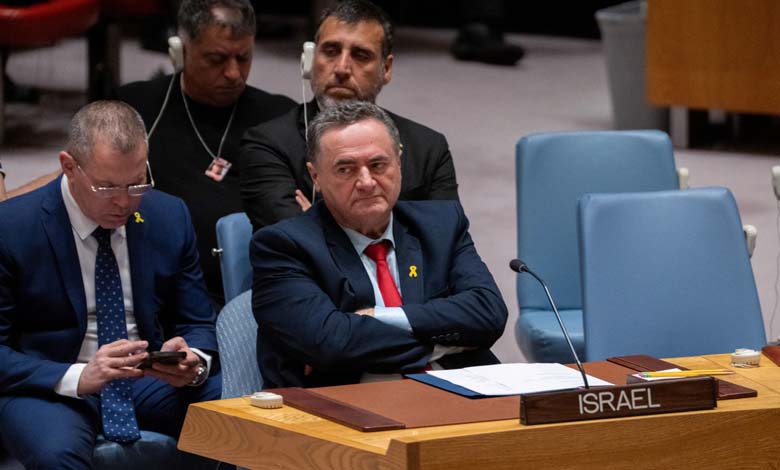The Israeli Cabinet Ignites: What Is the Impact of the Iranian Annihilation Threat on Israel?

Iranian threats towards Tel Aviv—a “war of annihilation”—have ignited the Israeli cabinet, following continuous threats since the outbreak of the October 7 war in Gaza and escalations across several fronts, notably what recently happened between Israel and Iran after Israeli strikes in Damascus and southern Lebanon targeting Iranian Revolutionary Guard commanders.
Direct Confrontation
The direct front between Iran and Israel has intensified after Tehran launched direct strikes on Tel Aviv through drones and missiles. The Iranian strikes were ineffective, as Israel announced that all attacking aircraft and missiles launched by Iran were shot down outside its airspace with the help of its allies. Iran claims to have given neighboring countries and the United States a 72-hour notice before executing the strikes.
Total War
Israel and Hezbollah previously moved towards total war, coinciding with the Iranian threat of launching a “war of annihilation” against Israel if it opts for a full-scale war on Lebanon.
Details have emerged about a division within the Israeli cabinet regarding this war, although the general impression was that there was Israeli consensus on this matter within the council. The Iranian mission to the United Nations stated on Friday via the X platform (formerly Twitter) that “an Israeli attack on Lebanon would mean the start of a war of annihilation.”
Pronounced Division within the Cabinet
Israeli media reported that the Iranian threat, which included an assessment that Israeli talks of a wide attack were “psychological warfare,” implied that Iran had information indicating that the issue of total war does not have consensus within the Israeli decision-making structure.
The Israeli Broadcasting Authority indicated that the threat comes as the meeting of the cabinet subcommittee on political security regarding the war in the north was marked by a severe crisis and division among ministers. Defense Minister Yoav Gallant affirmed during the meeting on Friday that he had informed the U.S. administration that Israel “does not want a war in the north and accepts reaching a settlement with Hezbollah.”
However, this statement from Gallant surprised the extremist National Security Minister Itamar Ben Gvir, who responded sharply, saying that escalation cannot be stopped by signing an agreement with Hezbollah and that the current situation should lead to war.
Yedioth Ahronoth highlighted this division, which surfaced for the first time in parallel with the Iranian threats, indicating that Gallant’s position comes as Hezbollah launched dozens of rockets and three drones towards the Galilee the previous day.
Strategic Affairs Minister Ron Dermer interrupted the heated debate between Gallant and Ben Gvir, asking the latter: “But even if we win, we will go to an agreement, don’t you think?” Ben Gvir responded: “We will win, and then there will be no one to sign an agreement with.”
Political Analysis
Professor of Political Science Tarek Fahmy stated that the issue of the impact of Iranian annihilation threats on Israel involves not only verbal threats but their overall effect on the Israeli structure. Fahmy emphasized that each party seeks to reinforce each other in a dynamic of mutual deterrence.
Fahmy added that what we might see in the coming times will be more challenging, but no one wants to enter into a direct confrontation. The rules of engagement continue, which means there is no indication of military action or confrontations between the two sides. This shows a world of tension between the two parties, but it is calculated and planned prudence.
Fahmy also mentioned that Iran and the United States are engaged in negotiations through intermediary parties. The confrontation between Israel and Hezbollah might continue for some time, especially within the framework of mutual deterrence.
Opinion of the Political Analyst
Political researcher Dr. Muneif Al-Malafikh affirmed that Iranian threats of annihilating Israel are not new. Iran is accustomed to launching threats through the media without implementing them, whether against Israel or the countries in the region.
-
Israeli Army and Mossad Agree on Plans to Strike Iran
-
Israeli Movements to Confront Iranian Threat: Reservist Call-up and Communication Jamming
Al-Malafikh added that the Iranian revolution led by Khomeini in 1979, when he announced the export of the revolution, was certainly directed towards the countries of the region, the Middle East, and the Gulf states. There is an Iranian intention to subjugate all these countries to what is called “Wilayat al-Faqih” (the Guardianship of the Islamic Jurist). These threats were not seriously considered.












